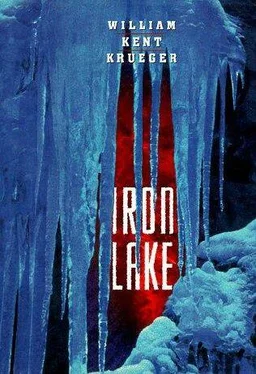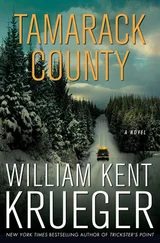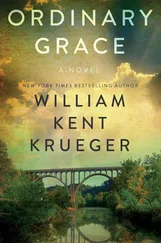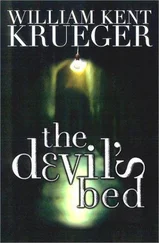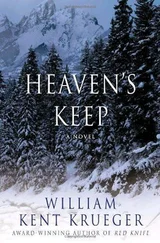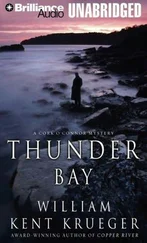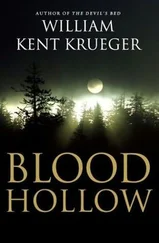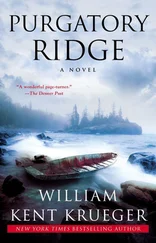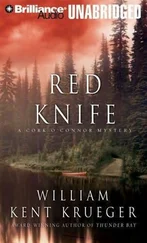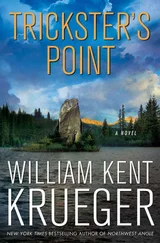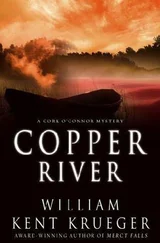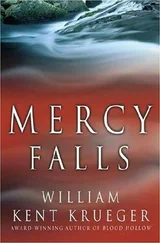William Krueger - Iron Lake
Здесь есть возможность читать онлайн «William Krueger - Iron Lake» весь текст электронной книги совершенно бесплатно (целиком полную версию без сокращений). В некоторых случаях можно слушать аудио, скачать через торрент в формате fb2 и присутствует краткое содержание. Жанр: Криминальный детектив, на английском языке. Описание произведения, (предисловие) а так же отзывы посетителей доступны на портале библиотеки ЛибКат.
- Название:Iron Lake
- Автор:
- Жанр:
- Год:неизвестен
- ISBN:нет данных
- Рейтинг книги:3 / 5. Голосов: 1
-
Избранное:Добавить в избранное
- Отзывы:
-
Ваша оценка:
- 60
- 1
- 2
- 3
- 4
- 5
Iron Lake: краткое содержание, описание и аннотация
Предлагаем к чтению аннотацию, описание, краткое содержание или предисловие (зависит от того, что написал сам автор книги «Iron Lake»). Если вы не нашли необходимую информацию о книге — напишите в комментариях, мы постараемся отыскать её.
Iron Lake — читать онлайн бесплатно полную книгу (весь текст) целиком
Ниже представлен текст книги, разбитый по страницам. Система сохранения места последней прочитанной страницы, позволяет с удобством читать онлайн бесплатно книгу «Iron Lake», без необходимости каждый раз заново искать на чём Вы остановились. Поставьте закладку, и сможете в любой момент перейти на страницу, на которой закончили чтение.
Интервал:
Закладка:
“Hi, kiddo. Where’s your mother?”
“In her office, working. She’s waiting to talk with you.”
He looked at the book in her lap. “What’s that?”
“Mrs. Cavanaugh asked me to do a reading for the Christmas program next week.”
“What reading?”
“Whatever I want. A poem, I think. I’m going to read something by Sylvia Plath.”
“Didn’t she kill herself?”
“She was a very intelligent woman.”
“What poem?”
“I haven’t decided yet.”
Cork sat down beside his daughter. She edged away. “Have you discussed this with Mrs. Cavanaugh?”
“She said the choice was mine.”
“Sylvia Plath. That doesn’t sound very Christmasy. Maybe we should talk about it,” Cork suggested.
“The choice is mine,” his daughter said emphatically.
Jenny was becoming more like Jo all the time. Even at fourteen her face already had the same tooserious shadowing. She was small, precocious, and full of radical energy. Her eyes were like her mother’s, too. A cold blue-white. But there were many things Jenny had done to make sure she was not like her mother. Jo had marvelous taste in her dress, yet Jenny chose to wear clothing bought at secondhand stores-old dresses and combat boots and ratty sweaters. With the help of a friend, she’d pierced each of her ears in two places, and she kept discussing the possibility of putting at least one hole in her nose. She streaked her hair with purple and sometimes wore it in short spikes that looked as if she’d grabbed hold of a live power line. She had given up smiling in favor of an attitude of disgust or sometimes simply ennui that was exaggerated by the sleepy look from her full-lidded eyes, part of the genetic Ojibwe legacy of her father.
“Guess I’d better see what your mother wants, huh?”
“Guess you’d better,” Jenny agreed.
“Wish me luck,” he said.
“Luck,” she offered him dourly.
He found Jo at her desk in her office bent over papers. The room was walled with law books and smelled of leather bindings. Jo looked up as he came in. Her eyes seemed big and startled, but as soon as she took off her thick glasses, they resumed their usual deceptively languid calm.
“We were worried about Anne.”
“My fault,” Cork said. “She was helping me with some things.”
“What things?”
“Am I under oath, counselor?”
“I’m just wondering if this was a mutual plan or one of Annie’s spur-of-the-moment inspirations.”
“Why don’t you ask Annie? She’ll tell you the truth.”
“I’m asking you. Because if it was something you knew about, I wish you’d have checked with me first.”
“There’s no court order dictating I have to do that.”
“Maybe there should be.”
She pushed away from the desk, stood, and turned her back to Cork. She stared out the window at the backyard, where the snow flew around the trunk of the maple tree and piled up against the lilac hedge. Her hands were clasped tightly behind her.
“I think it’s time we began discussing a divorce.”
“Annie was just telling me how she prays for us to get back together.”
“Cork, we have to help them see things as they are.”
“If I always knew how things are, I suppose I’d do that.”
She turned back. “You know, it’s funny. Last year I could have sworn a divorce was exactly what you wanted.”
“I never said that.”
“No,” she agreed. “But you also didn’t object when I asked you to leave the house.” She faced the window again, studying the storm outside.
“It was what you wanted, wasn’t it?” When she didn’t reply, he walked slowly to her desk, then carefully came around and stood beside her. “Maybe it’s time you and I stopped thinking so much about what we want and thought a little more about the kids.”
She swung around angrily and threw her glasses on the desk. “You think I don’t worry about them? I work long hours to make sure the bills are paid and Annie gets her braces and Jenny might not have to work her way through college. I don’t get any help from you on that.”
“I wasn’t talking about finances,” he countered coldly. He walked away and stood staring at the rows of legal books, tomes that attempted to spell out justice, something he no longer believed in. He fought against the hopeless, cornered feeling they gave him.
“Look, we can’t go on the way we’ve been going,” Jo said. “It’s not good for anybody, especially the children.”
“And a divorce would be better?”
“Cleaner.”
“Like antiseptic.”
“It’s what’s best for everybody. I think deep down you know that, Cork.”
They were both quiet. The wind rattled the window, and from beyond the door came the sound of the television in the living room.
Cork put his hands deep in his pockets and balled them uselessly into fists. “Fine.”
“When?” Jo pressed him.
“Whenever you want.”
She put her glasses back on and looked down at the papers on her desk. “After Christmas will be fine. You’ll want to get yourself an attorney. I can give you some recommendations if you’d like.”
“Don’t do me any favors,” he replied.
There was a knock at the door. Rose peaked in. “Dinner’s ready,” she said, looking them both over tentatively.
“I’ve been invited,” Cork told Jo.
“All right,” Jo agreed, not happily.
Near the end of dinner, the telephone rang. Rose answered it. She held the phone against her ample bosom and said, “It’s for you, Cork. It’s Darla LeBeau.”
“Darla?” Cork got up from the table and took the phone. “Hi, Darla. What’s up?” He listened and his face grew serious. “I’m sure it’s nothing. He’s a responsible boy.” He listened again. “Look, how about if I come over? No, it’s no trouble.”
“What’s no trouble?” Rose asked as soon as he hung up.
“Paul LeBeau went off this afternoon to deliver his newspapers and hasn’t come back. He’s been gone almost five hours.”
“You don’t think he’s still out there in the snow somewhere?” Rose asked.
“I don’t think so,” Cork said. “Even if he was struggling, he could easily knock on a door. Anybody in Aurora would let him in. Darla’s afraid Joe John’s come back and taken him.”
Rose shook her head. “I don’t think Joe John would do something like that. Do you, Cork?”
“It’s a possibility.”
“He’d kidnap his own son?” Rose looked astonished.
“Jesus, Aunt Rose, it happens all the time,” Jenny said.
“Don’t swear,” Anne told her sister.
“Jesus Christ.” Jenny smiled cruelly.
“Jenny!” Rose said.
“Jenny’s right,” Cork broke in. “Most common form of kidnapping. The truth is, if a kid’s going to be taken, I’d rather he was grabbed by someone who’s doing it out of love.”
“That’s not love, Cork,” Jo said.
“It might be to Joe John.” Cork started for the kitchen.
“You don’t mind going?” Rose asked.
“No,” he said over his shoulder. And it was absolutely true. It had been a long time since anyone needed him this way, and if felt pretty damn good.
5
Darla opened the door even before Cork had a chance to knock. Her eyes were puffy and red from crying, and tears had left a trail through her face powder down both cheeks.
“It’s Joe John, Cork,” she said. “I know it’s Joe John.”
Darla worked at the casino in public relations and was still dressed for the office in a dark blue blazer and skirt, a cream-colored blouse. There was gold around her neck and on her wrists.
Cork stepped in out of the cold and wiped melting snowflakes from his face. “What makes you think so, Darla?”
Читать дальшеИнтервал:
Закладка:
Похожие книги на «Iron Lake»
Представляем Вашему вниманию похожие книги на «Iron Lake» списком для выбора. Мы отобрали схожую по названию и смыслу литературу в надежде предоставить читателям больше вариантов отыскать новые, интересные, ещё непрочитанные произведения.
Обсуждение, отзывы о книге «Iron Lake» и просто собственные мнения читателей. Оставьте ваши комментарии, напишите, что Вы думаете о произведении, его смысле или главных героях. Укажите что конкретно понравилось, а что нет, и почему Вы так считаете.
